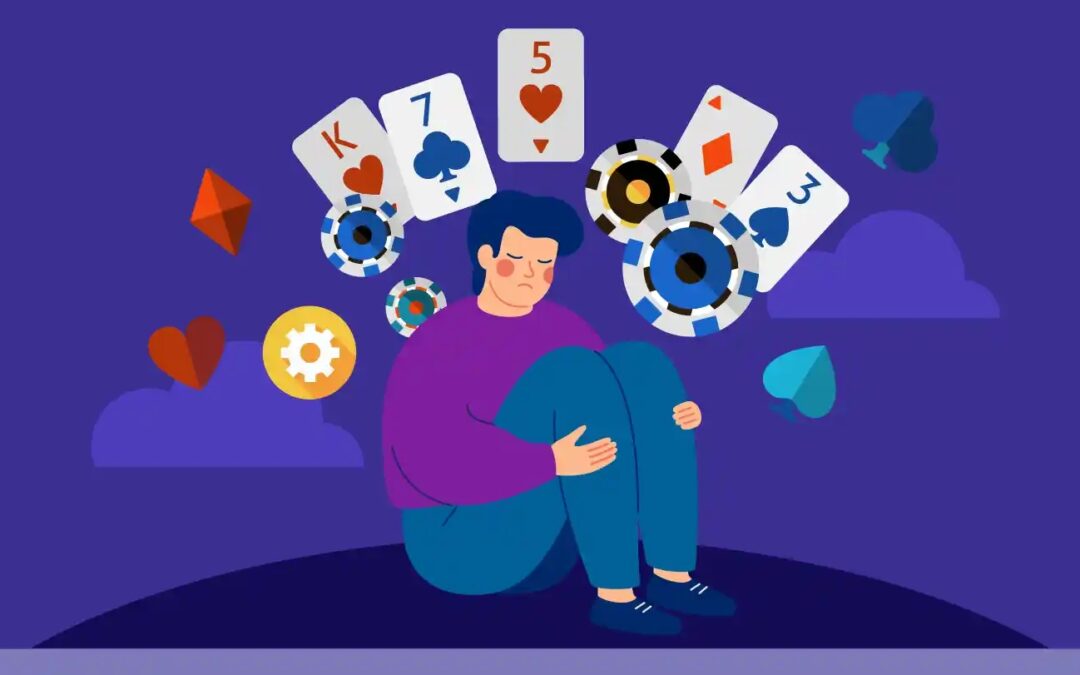Gambling addiction, often referred to as ludomania, is a complex and multifaceted disorder that not only affects an individual’s financial stability but also profoundly impacts their mental health.
While the allure of winning big may seem appealing, the consequences of compulsive gambling can be devastating, leading to severe emotional, psychological, and interpersonal challenges.
In this article, we delve into the intricate relationship between gambling addiction and mental health, exploring the underlying mechanisms, associated disorders, and available treatment options.
Understanding Gambling Addiction
Gambling addiction is characterized by an uncontrollable urge to gamble, despite negative consequences. Individuals with this disorder often experience an intense craving to engage in gambling activities, leading to compulsive behavior and an inability to control their impulses.
Like other forms of addiction, such as substance abuse, gambling addiction can hijack the brain’s reward system, causing changes in neurotransmitter levels and neural pathways.
One of the defining features of gambling addiction is the progressive nature of the disorder. What may start as occasional betting or gaming can quickly escalate into a full-blown addiction, as individuals chase the euphoric highs associated with winning.
The thrill of anticipation, coupled with the possibility of financial gain, can create a potent cocktail of emotions that reinforce addictive behavior.
Impact on Mental Health
The consequences of gambling addiction extend far beyond financial ruin, taking a significant toll on an individual’s mental well-being. Here are some ways in which gambling addiction can affect mental health.
Anxiety and Stress
Chronic gambling can lead to heightened levels of anxiety and stress, as individuals grapple with the uncertainty of outcomes and the pressure to recoup losses.
The fear of financial ruin, coupled with the shame and guilt associated with their behavior, can exacerbate these feelings, creating a vicious cycle of emotional distress.
Depression
Studies have shown a strong correlation between gambling addiction and depression.
The constant cycle of highs and lows, coupled with the negative consequences of gambling, can contribute to feelings of hopelessness, worthlessness, and despair. Individuals may experience profound sadness, loss of interest in activities they once enjoyed, and suicidal ideation.
Isolation and Social Withdrawal
Gambling addiction can lead to social isolation and withdrawal from friends, family, and other social support networks. Individuals may feel ashamed or embarrassed about their behavior, leading them to withdraw from social interactions to avoid judgment or scrutiny.
This isolation can further exacerbate feelings of loneliness and depression, creating a vicious cycle of avoidance and withdrawal.
Impulse Control Disorders
Gambling addiction is often associated with other impulse control disorders, such as compulsive shopping or binge eating. These co-occurring disorders can further complicate the individual’s mental health struggles, making it challenging to address underlying issues and triggers.
Cognitive Distortions
Gamblers often experience cognitive distortions, such as irrational beliefs about their ability to win or the notion that they can control random outcomes. These distorted thoughts can fuel addictive behavior and make it difficult for individuals to recognize the severity of their problem.
Treatment and Recovery
Despite the profound impact of gambling addiction on mental health, recovery is possible with the right support and intervention. Here are some treatment options and strategies for addressing gambling addiction:
Therapy
Cognitive-behavioral therapy (CBT) has been shown to be effective in treating gambling addiction by helping individuals identify and challenge distorted thoughts and behaviors.
Therapists work with clients to develop coping skills, improve self-esteem, and address underlying emotional issues.
Support Groups
Participating in support groups, such as Gamblers Anonymous, can provide individuals with a sense of community and solidarity as they navigate their recovery journey. Sharing experiences, struggles, and successes with others who understand can be incredibly empowering and motivating.
Medication
In some cases, medication may be prescribed to help manage underlying mental health conditions, such as depression or anxiety, that co-occur with gambling addiction. Antidepressants or anti-anxiety medications may be used to alleviate symptoms and improve overall well-being.
Financial Counseling
Working with a financial counselor or advisor can help individuals regain control of their finances and develop responsible money management strategies. Creating a budget, reducing debt, and establishing healthy spending habits are essential components of long-term recovery.
Lifestyle Changes
Engaging in healthy lifestyle habits, such as regular exercise, proper nutrition, and adequate sleep, can support overall well-being and reduce the risk of relapse. Finding alternative ways to cope with stress and boredom, such as hobbies or recreational activities, can also help individuals avoid the temptation to gamble.
Conclusion
Gambling addiction is a serious and often misunderstood disorder that can have profound implications for mental health. From anxiety and depression to social isolation and cognitive distortions, the impact of compulsive gambling extends far beyond the confines of the casino or betting shop.
Recognizing the signs and seeking help early are crucial steps in addressing this issue and reclaiming control over one’s life. With the right support, treatment, and determination, individuals can overcome gambling addiction and embark on a path to recovery and emotional well-being.

